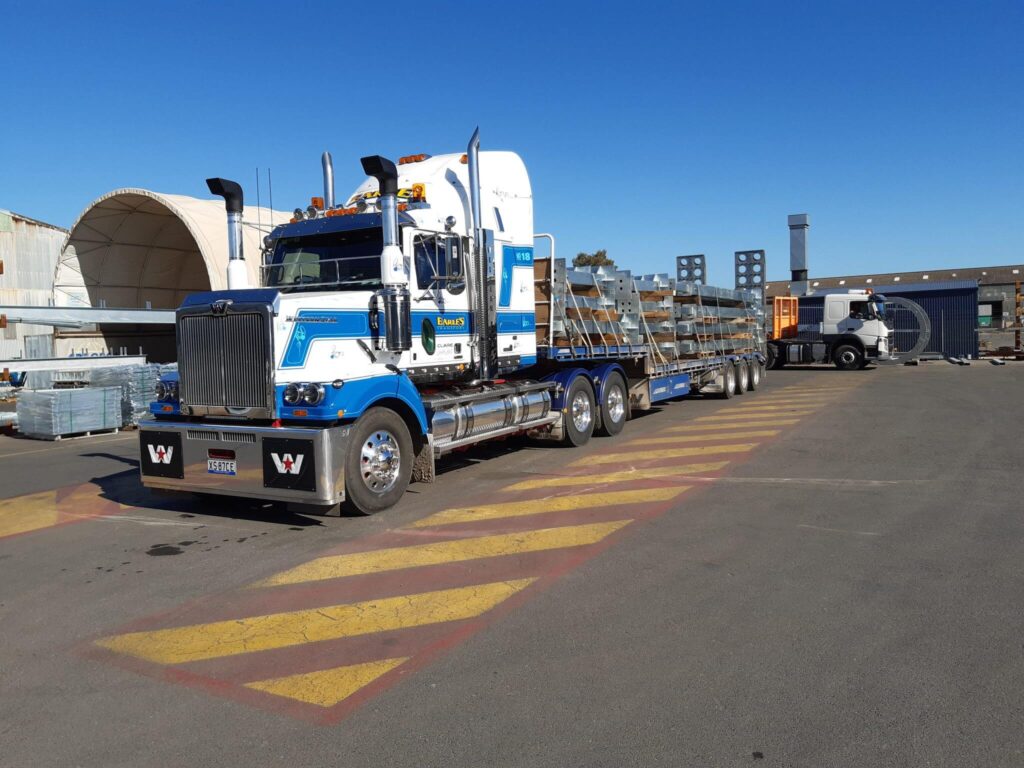Everything You Need To Know About General Freight Transport
Freight is essential for every business, no matter where it operates. Whether you are a small business owner or a large one, you have to ship your goods from one place to another, and for that, you need general freight trucking services.
This is why we are here today to let you know that all your logistics management and supply chain queries will be answered here. This blog will give you everything you need about general freight.
So let's get started

What is Freight Transportation?
To understand freight transportation, we first need to define "freight." The term "freight" rhymes with the word eight and is pronounced as "frayt." When anything is vast or heavy, like hundreds of widgets or tractor wheels, it is called freight.
Transportation of freight refers to moving commodities from one place to another using a variety of vehicles, such as trucks, ships, aeroplanes, trains, etc.
As an essential component of the global economy, freight transportation is crucial for supply chain management.
Types of Freight Products
There are many different sizes and types of freight products, and each type requires a particular method of transportation.
Here are some broad categories depicting all of them in place:
- General Freight: It refers to any standard freight with no specific needs. It is frequently palletised for ease of transportation.
- Bulk Freight: Bulk freight shipments transport goods like coal, grain and oil that are typically carried in big loads and directly poured into tankers, railcars, or ship holds.
- Liquid Freight: Fuels, oils and milk are all examples of liquid freight transported in significant quantities by specialised tankers. It is also considered bulk freight as well.
- Hay Transport: Transporting chopped, dried, and stored plants—like legumes or grass—is known as hay freight. Hay is fed to animals, especially grazing animals such as sheep, goats, cattle, and horses.
- Livestock Transport: The term "livestock freight" refers to the movement of animals, usually for business use. Concerns about animal care, emergency protocols, and compliance with regulations must all be considered when shipping cattle.
- Refrigerated transport: Certain foods, drinks, pharmaceuticals, and agricultural goods must be transported, which calls for climate-controlled vehicles.
- Automotive freight: Several vehicles can transport automobile freight, including open trailers, enclosed trailers, and multimodal transportation. Transportation of automobiles requires specialised equipment, insurance, and adherence to safety standards and laws.
We have seen the important factors you need to consider for protecting equipment during Heavy Equipment Hauling. If you feel that you do not have enough resources to fulfil these considerations, then no worries. You can eliminate your burden of hauling heavy equipment by choosing transport services.
The Basic Elements of Freight Transportation
The logistics and freight transportation sector is a complicated one with many moving components. Here, we've highlighted a few key players who frequently take part in freight transportation:
- Logistics: This is the vital part that involves organising and arranging the efficient and economical transportation of products from one point to another. It also entails various tasks like:
- Route planning
- Inventory management
- Documentation
- Technology
2. Trucking and Transportation: This refers to the physical movement of goods from one place to another using various modes, such as:
- Road:
- Rail:
- Air:
- Water
3. Storage and Distribution: This entails the effective and strategic source of commodities before final delivery.
- Warehouses
- Distribution centers
- Inventory management
4. Intermodal drayage and trucking: Using various modes of transportation for a single consignment includes these:
- Intermodal
- Drayage
Remember, all these four elements work together to ensure a smooth and easy transportation of your goods. So make sure you make the best use of each of them per your business's needs.
Benefits of Freight Transportation
Due to their many benefits, Earles' Transport's freight services are essential to the nation's economy. These are:
- Accessibility and Flexibility: Because of Australia's vast road network, robust railway system, and expanding multimodal choices, businesses can select the most viable option.
- Reliability and Security: Modern infrastructure and strict regulations guarantee the safety and security of goods throughout the supply chain.
- Global Connectivity: Australia's advantageous position in Asia-Pacific, advanced port infrastructure, and free trade agreements enable smooth trade with significant economies.
- Efficiency and Cost-Effectiveness: Technological developments, a competitive market, and high volumes on important routes—particularly for bulk commodities—drive cost-efficiency in the industry.
- Additional Advantages: A trained labour force, government support for new technologies and infrastructure, and ongoing innovation boost the efficiency of the logistics industry.
The Takeaway
Knowing everything related to freight transportation for your business, we are sure you will make the right choice. By understanding and considering all the types and benefits stated above, you can choose the best mode of fright per your business needs. Get in touch with our experts to learn more.
